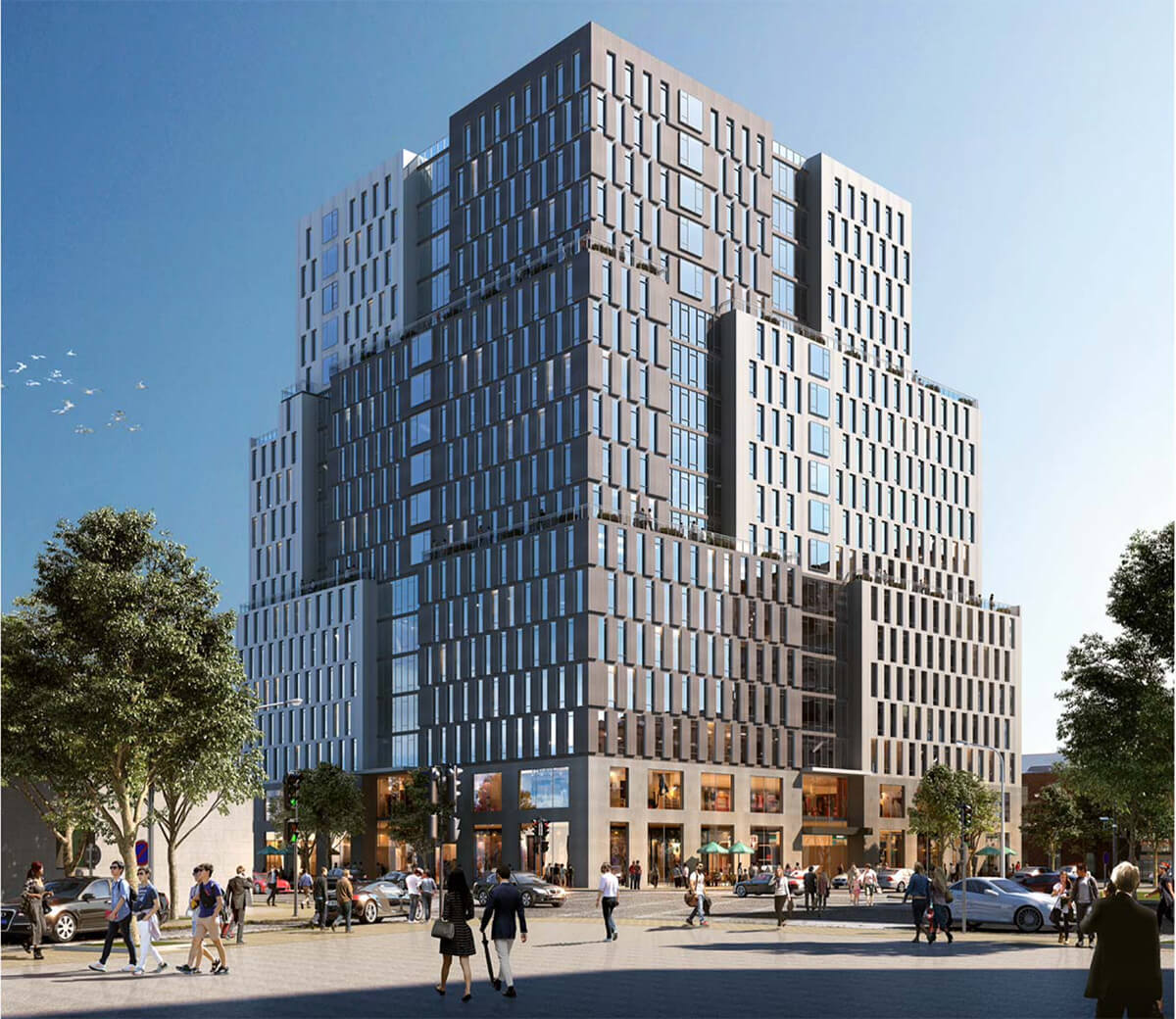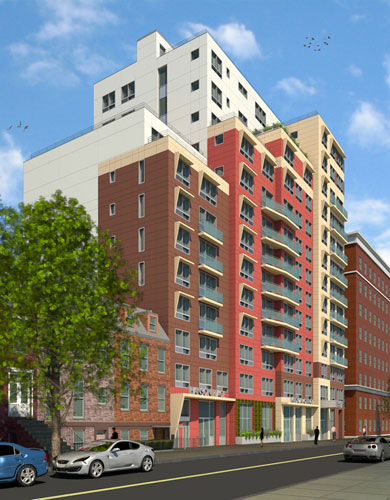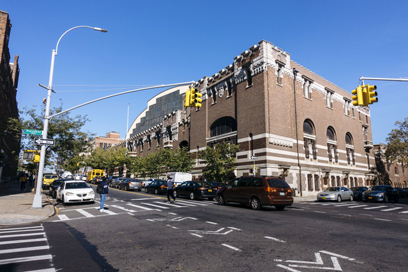The City Council moved to approve the controversial 840 Atlantic Avenue rezoning this week, despite its failure to gain support from Community Board 8.
The City Council Land Use Committee voted to approve the application — which will allow for an 18-story building on the corner of Vanderbilt and Atlantic Avenues in Prospect Heights that currently hosts a McDonalds drive-through — on Sept. 13, leaving only the full City Council to vote before it’s written into law.
An updated version of the proposal was presented to and approved by the community board’s land use committee on Sept. 2. The latest version of the proposal reduces the number of affordable units to about 54, but cements their affordability at a deeper level under the city’s Mandatory Inclusionary Housing program at option 3. It also reduces the building’s bulk by about 10 percent.
The proposal to erect a dense mixed-use building at the corner of the two heavily trafficked thoroughfares was rejected numerous times by the boards land use committee, and by Borough President and would-be mayor Eric Adams, who requested a less dense alternative be proposed.
Committee members repeatedly raised concerns that the development was out of step with the long-planned M-Crown rezoning, which seeks to rezone the industrial corridors of Prospect and Crown Heights for development while retaining jobs in the area. The developer, Atlantic-Vanderbilt Holdings LLC, was asked by board members to resubmit their application.
Community boards play an advisory role in the Uniform Land Use Review Process, but they must officially weigh in before a project can move forward.
The exact identity of Atlantic-Vanderbilt Holdings LLC remains murky, though Simon Duschinsky of the Rabsky Group development firm is known to be a passive investor in the project.
According to sources familiar with the negotiations, Councilmember Laurie Cumbo, who represents the area and has the most influence over land use decisions, brokered a meeting between select committee members and the developer, which led to the most updated version of the proposal being presented to the committee and approved.
Neither Cumbo nor any of her staffers participated in the meetings, which were attended solely by committee members and representatives for the developer, according to the source.
A statement read by City Council Land Use Chair Francisco Moya during a Sept. 10 meeting of the land use subcommittee indicated her support, though Cumbo has not attended any of the public meetings regarding the project.
“840 Atlantic Avenue presents a rare opportunity to secure truly affordable housing and an affordable long term home for the beloved arts organizations and job-generating commercial space on a site that is currently home to only a parking lot and fast food restaurant,” the statement reads.
A representative for Cumbo did not return a message seeking further comment.
After its approval by the land use committee, the proposal failed to pass the full board, with 14 members voting in favor, 8 against, and 8 abstaining. Because the yes votes were not in the majority, each abstention counted as a vote against approval.
The board meeting saw opponents of the project paint it as a rush-job by Cumbo, whose term ends at the end of 2021.
“Those market-rate unaffordable units are the key drivers of gentrification, in just bleeding out Black people from the community and people of color,” said State Sen. Jabari Brisport, who represents the area and has butted heads with the councilmember. “This does seem like something that’s being railroaded through by the developer and the current councilwoman.”
Cumbo has previously stated that she wants the Atlantic-Vanderbilt lot to comply with the M-Crown vision, and that it was essential to her that the project be approved by the community board.
“I will not approve any applications that do not meet the guidelines of the M-CROWN recommendations and the approval of Community Board 8,” she told Bklyner in April.
According to Gib Veconi, a member of the board’s land use committee who voted to approve the project, the project was worth working slightly outside the M-Crown framework because of the concessions made regarding affordable housing and the dedicated arts and community space on the ground floor of the proposed building.
“The developer agreed to provide 8,000 square feet for arts use permanently and agreed to provide deep affordability, which was farther than the M-Crown resolution had gone in terms of affordability,” Veconi told Brooklyn Paper.
Under Mandatory Inclusionary Housing option 3, the 54 income-targeted units will be targeted towards those making about 40 percent of the area median income — $31,000 for a family of three, for example.
The land use committee intended to have those concessions written into an enforceable Community Benefits Agreement, but since the full board rejected the plan, is unable to do that.
Following its approval in committee, the proposal will be voted on by the full City Council who will almost certainly approve it, before it goes to the mayor’s desk for his rubber stamp.























